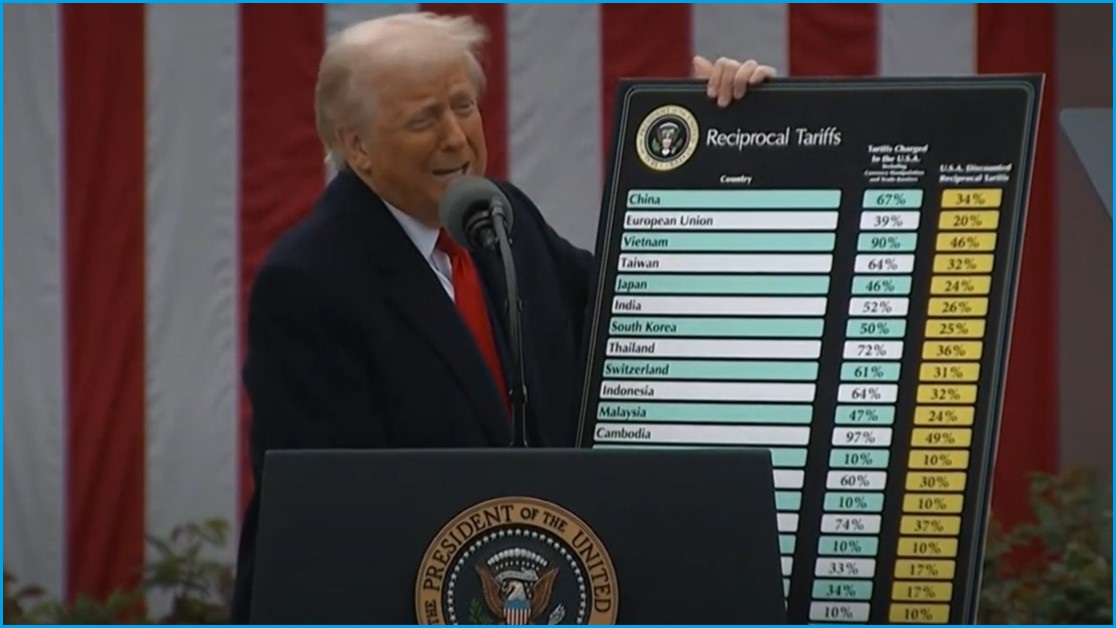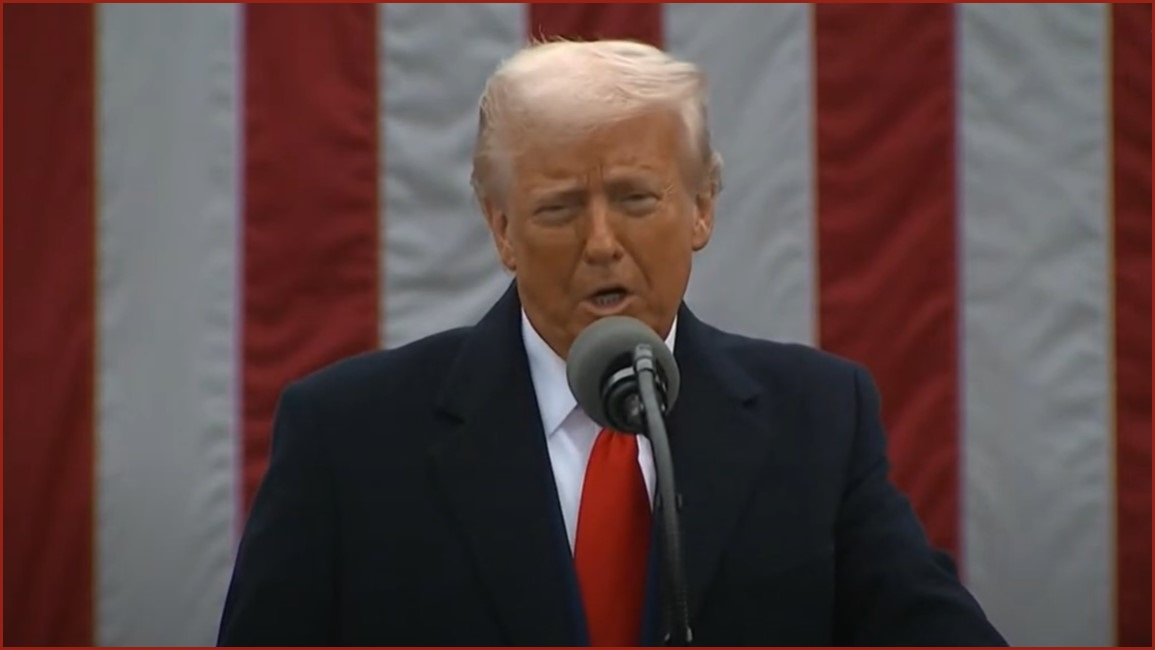Both major parties have thrown their support behind the Big Tech bargaining code after it was listed in a US government report as a “significant” barrier to exports and a contributing factor to the imposition of tariffs on all Australian exports to America.
US President Donald Trump on Thursday announced retaliatory tariffs on nations around the world, with Australia hit with a 10 per cent tariff on all exports to the US.
While this was the lowest rate – some countries were hit with tariffs four times that – Australian Prime Minister Anthony Albanese said they were “unwarranted”.
“President Trump referred to ‘reciprocal’ tariffs. Australia does not impose tariffs on the United States.
"A reciprocal tariff would be zero.
“The administration’s tariffs on have no basis in logic – and they go against the basis of our two nations’ partnership.
“This is not the act of a friend.”
The Australian government’s News Media Bargaining Code, which requires tech firms such as Meta and Google to enter revenue-sharing deals with local media firms for the use of their content, has already been called out by the Trump administration as one such measure.
Late last year the Labor government unveiled a plan to beef up the code with the introduction of major financial “charges” for tech firms that don’t enter into deals with local media firms, even if they remove news content from their platforms entirely.
There has been no further movement on these reforms and they will not come into effect before the May election.

President Trump pulls out a giant tariff chart prop. Photo: YouTube
The code, which was introduced by the Coalition government in 2021, was directly named in the US Trade Representative’s 2025 National Trade Estimate Report on Foreign Trade Barriers, which highlights “significant foreign barriers to US exports, US foreign direct investment and US electronic commerce”.
The report defines trade barriers as “government laws, regulations, policies or practices…that distort or undermine fair competition”.
For Australia, the report lists the bargaining code as a key trade barrier, saying that the Australian government plans to introduce a “financial penalty” for designated platforms that do not reach revenue-sharing deals with news companies.
The trade report also raised concerns with Australian intellectual property laws, biosecurity measures and planned streaming quotas.
Australia stands firm
Asked about the report on Tuesday, Albanese backed the bargaining code and said Australia would not be budging on the reforms.
“Those issues are not up for negotiation from the Australian government,” Albanese told the media.
“We would defend Australia’s interests.
“The idea that we would weaken biosecurity laws is really that, as my mum would say, cutting off your nose to spite your face.
“These are the issues that we have been discussing with the US administration.
“Those discussions are ongoing. I want to see a constructive outcome, but what I won’t do is undermine our national interest.”
Our Government will always stand up for Australia.
— Anthony Albanese (@AlboMP) April 2, 2025
These are uncertain times - but all Australians can be certain of this: we will always stand up for Australian jobs, Australian industry, Australian consumers and Australian values.
These tariffs are not unexpected, but they… pic.twitter.com/bXaFTcvnN8
This position was backed by Opposition Leader Peter Dutton, who on Tuesday said he agreed with Albanese on the bargaining code.
Albanese responded to the tariffs on Thursday morning, saying that they will have “consequences” for how Australians view its relationship with the US.
“Our shared history, our friendship, our alliance, these are all bigger than a poor decision,” Albanese told reporters.
“But the Australian people have every right to view this action by the Trump Administration as undermining our free and fair trading relationship.
“These are uncertain times, but Australians can be absolutely certain of this: our government will always stand up for Australian jobs, Australian industry, Australian consumers and Australian values.
“For Australia, these tariffs are not unexpected, but let me be clear - they are totally unwarranted.”
Albanese also added that from today, “Australian businesses will be front of the queue for government procurement and contracts.”
Tech crackdown on hold
The bargaining code was launched in 2021 and requires designated social media platforms to enter into arbitration on revenue-sharing deals with media firms or face a fine of up to 10 per cent of Australian revenue.
In the wake of its passage through parliament, Meta and Google entered into a series of deals with Australian media firms outside of the code, and no company has been designated under it in the years since.
Last year Meta announced it would not be renewing any of these deals in Australia, representing a loss of about $70 million annually for the local media industry.
Last month a lobby group with members including Google, Meta, Apple, Amazon and X wrote to Trump to urge him to target “discriminatory” Australian laws such as the bargaining code.
Trump himself has also signalled he will take action against countries that target big tech firms, issuing an executive order in February threatening retaliatory action against nations imposing “one-sided, anti-competitive policies and practices”.
Fears over backlash from the Trump administration has led the Australian government to pause some of its planned reforms around the tech sector.
Plans to introduce a big tech duty of care were delayed and won’t be introduced until at least after the upcoming election, and the federal government is also yet to decide whether it will introduce major fines for breaches of this new code.










